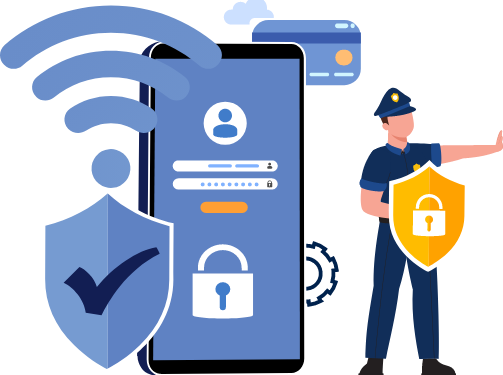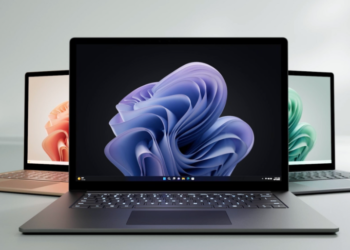If you’re concerned about the security of your online banking transactions, you may want to consider using a VPN. A VPN can encrypt your traffic and help to protect your finances from hackers and identity thieves. In this article, we’ll explain how VPNs work and why they can be a valuable tool for keeping your banking information safe.
-Bank with Confidence: How VPNs Shield Your Financial Transactions
When it comes to your finances, you want to be sure that your transactions are safe and secure. That’s why more and more people are turning to VPNs to protect their banking information.
A VPN, or virtual private network, is a tool that encrypts your online activity and hides your IP address. This makes it difficult for hackers to intercept your data and steal your information.
There are many benefits to using a VPN when you’re banking online. First, it can help you avoid phishing scams. Phishing is when hackers send fake emails or texts that look like they’re from your bank. They’re trying to trick you into entering your login information so they can steal your money.
Second, a VPN can protect you from malware. Malware is software that can damage your computer or mobile device. Hackers can use malware to infect your device and steal your banking information.
Third, a VPN can help you stay anonymous online. When you’re banking online, you want to make sure that your personal information is safe. By using a VPN, you can make sure that your data is encrypted and your identity is hidden.
Fourth, a VPN can help you access your bank’s website from anywhere in the world. If you’re traveling, you may not be able to access your bank’s website if it’s blocked in your country. But if you connect to a VPN server in another country, you’ll be able to access your bank’s website and check your account balance.
Finally, a VPN can help you save money on fees. Some banks charge higher fees for customers who live in certain countries. But if you use a VPN, you can connect to a server in a country where those fees are lower. This can help you save money on your banking transactions.
If you’re looking for a VPN to protect your banking information, make sure to choose a reputable provider. Look for a provider that offers military grade encryption and 24/7 customer support. And be sure to read the reviews to see what other customers have to say.
By using a VPN, you can bank with confidence knowing that your transactions are safe and secure.
-What is a VPN?
A VPN, or Virtual Private Network, is a secure tunnel between two or more devices. VPNs are used to protect private web traffic from snooping, interference, and censorship.
When you connect to a VPN, all of your web traffic is routed through an encrypted tunnel to a server controlled by the VPN provider. From there, your traffic exits onto the public internet. This encrypts your data and prevents your ISP, government, or anyone else from snooping on your web activity or seeing your real IP address.
A VPN can also get around web-restrictions and censorship. Many schools and workplaces block access to certain websites, such as social media or streaming video sites. With a VPN, you can bypass these restrictions and access any website you want.
VPNs are an essential tool for online privacy and security. They can help you protect your data from snoopers and government surveillance, and they can also get around web-restrictions and censorship. If you’re looking for a VPN, make sure to choose one that offers strong security and privacy protections.
-How Does a VPN Work?
When you use online banking, you’re trusting your financial information to the company’s website. But what happens when that website is hacked? Your personal and financial information could be compromised.
That’s where a VPN comes in. A VPN, or virtual private network, encrypts your internet traffic so it can’t be intercepted by hackers. That means your banking information is safe, even if the website you’re using is not.
Here’s how a VPN works:
When you connect to the internet, your computer is assigned an IP address. This address can be used to track your online activity.
A VPN encrypts your internet traffic and routes it through a server in a location of your choice. That server assigns you a new IP address, making it appear as if you are located in a different country.
Your internet traffic is now encrypted and routed through a secure tunnel. Hackers would need to decrypt your traffic to intercept it, which is virtually impossible.
A VPN also hides your IP address from websites you visit. That means your real location is hidden, and you can browse the internet anonymously.
A VPN is a great way to protect your online banking transactions. It encrypts your traffic so it can’t be intercepted by hackers. It also hides your IP address, so your real location is hidden. And it routes your traffic through a secure tunnel.
-Why Use a VPN for Banking?
A VPN, or Virtual Private Network, is a secure tunnel between your device and the internet. When you connect to a VPN, all of your internet traffic is routed through an encrypted tunnel. This keeps your data safe from hackers, ISPs, and other third-parties.
Banking online is convenient, but it comes with some risks. Your financial information could be stolen if you’re not careful. A VPN can help protect your online banking transactions.
When you connect to a VPN, your traffic is encrypted. This makes it much harder for hackers to intercept and steal your data. Even if they were able to intercept your data, they wouldn’t be able to read it. This keeps your banking information safe from prying eyes.
In addition to encryption, a VPN also hides your IP address. This makes it difficult for ISPs and other third-parties to track your online activity. Your identity and location are hidden when you use a VPN.
A Best VPN is a way to protect your online banking transactions. VPNs offer encryption and IP address masking to keep your data safe. Choose a reputable VPN service and connect every time you bank online.
-The Benefits of Using a VPN for Banking
Banking online is convenient, but it comes with some risks. Your financial information could be compromised if you’re not careful.
A virtual private network (VPN) can help protect your online banking transactions. A VPN encrypts your internet traffic and routes it through a secure server. This makes it harder for hackers to intercept your data.
There are other benefits of using a VPN for banking as well. A VPN can help you access your bank’s website if it’s blocked in your country. And a VPN can help you avoid currency conversion fees if you’re traveling abroad.
If you’re not already using a VPN, consider adding one to your online security arsenal. It could be the difference between a secure transaction and a data breach.
-The Risks of Not Using a VPN for Banking
When you bank online, you need to know that your financial information is safe from hackers. One way to protect your data is to use a virtual private network, or VPN. A VPN encrypts your online traffic, making it difficult for anyone to intercept your data.
Banking online is convenient, but it comes with some risks. Your financial information could be stolen if you’re not careful. Hackers can use your data to commit fraud or identity theft.
A VPN can help protect your data when you’re banking online. A VPN encrypts your online traffic, making it difficult for anyone to intercept your data. A VPN also hides your IP address, making it harder for hackers to track your online activity.
If you’re not using a VPN, you should consider doing so to protect your data. A VPN is a simple and effective way to keep your information safe when you’re banking online.
-How to Choose the Right VPN for Banking
A Virtual Private Network (VPN) can be a great tool for online banking. A VPN encrypts your internet traffic and routes it through a server in another location, making it harder for third parties to track or intercept your data.
There are a few things to keep in mind when choosing a VPN for banking:
1. Make sure the VPN uses strong encryption.
2. Choose a VPN with a no-logs policy.
3. Select a VPN with a large server network.
4. Consider a VPN with a kill switch.
Here are a few of our top picks for the best VPNs for banking:
-Tips for Using a VPN for Banking
When you bank online, you need to be confident that your financial information is safe from hackers. A VPN can help protect your data by encrypting your internet connection.
Here are some tips for using a VPN for banking:
1. Choose a reputable VPN service.
There are many VPN providers to choose from, so make sure to do your research before selecting one. A reputable VPN service will have robust security features and a strong privacy policy.
2. Connect to a server in a country with strong banking regulations.
When selecting a server, choose one in a country with strong banking regulations. This will help ensure that your financial information is well-protected.
3. Use a strong encryption protocol.
Make sure to use a strong encryption protocol when connecting to your VPN. This will help to keep your data safe from hackers.
4. Keep your software up to date.
Make sure to keep your VPN software up to date. This will help to ensure that your connection is secure and that your data is protected.
5. Disconnect from your VPN when not in use.
When you are not using your VPN, make sure to disconnect from it. This will help to prevent your data from being exposed.

















